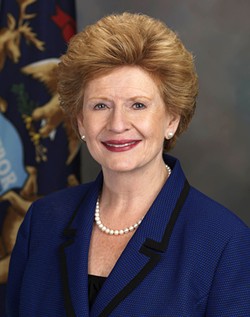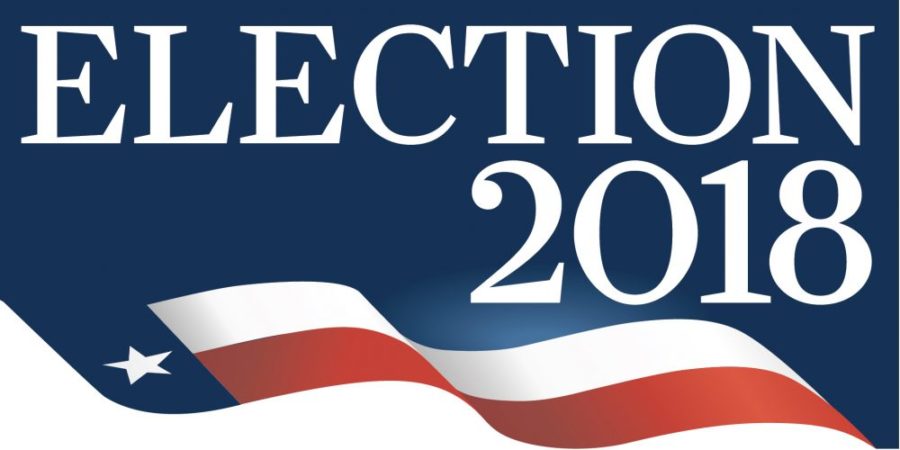2018 election will lead to changes at local, state levels
November 27, 2018
On Nov. 6, the 2018 Midterm Election took place. On the ballot were three proposals that hold the ability to reshape Michigan’s politics, government, and constitution. It was encouraged that all eligible voters make the trip to vote because it creates an accurate representation of the government in Michigan. By the people and for the people, this election covered controversial topics on a national scale.
Additionally, this date details the Congressional Ballot, where people could vote on 14 seats of the House of Representatives, a candidate of the Senate, the State Governor, Attorney General, and the Secretary of State.
Proposal 1
The first item on the ballot dealt with the legalization of recreational marijuana use. It is only legal if the person in possession of the drug is above the age of 21 years old. In addition, this proposal would also enact a tax on the sale of marijuana Currently, the only states that allow for the use of medical marijuana are Washington, Oregon, California, Nevada, Alaska, Colorado, Maine, Massachusetts, and Vermont. Proposal 1 was passed with 55.8% of votes for it and 44.2% against (New York Times). Now, Michigan is apart of the states that have legalized the use of recreational marijuana.
Proposal 2
The second item on the ballot detailed the independent redistricting commission. This is an amendment proposed for Michigan’s constitution to make voting lawful and equal. Gerrymandering is defined as redrawing political boundaries in a way to give a certain party a numeric advantage over an opposing party. In terms of Michigan, the congressional districts have been gerrymandered in a way that benefits the Republican party, causing these politicians to gain control over more districts than the percentage of vote overall. Proposal 2 ended up passing with an astounding 61.1% for and 38.9% against (New York Times).
Proposal 3
The third item on the ballot discussed different voting policies that would be added to Michigan’s constitution. This includes straight-ticket voting, automatic voter registration, same-day voter registration, and no-excuse absentee voting. With all of these policies, it would allow Michigan voters to cast their votes in more of a convenient matter in terms of their own schedules. Proposal 3 passed easily, with a two-thirds majority in favor (New York Times).
Michigan House of Representatives

Republican Matt Maddock defeated Democrat Laura Dodd to become the District 44 representative in the Michigan House of Representatives.
Republican candidate Matt Maddock won the race against Laura Dodd to control the Michigan State House District 44. This includes the townships of Milford, Highland, White Lake, Springfield, and part of Waterford. Maddock won this with 6,854 more votes than Dodd. Maddock aims to achieve more educational freedom and to establish a free market.

Democrat Debbie Stabenow defeated Republican opponent John James to remain a US Senator.
U.S. Senate
Democratic candidate Debbie Stabenow was victorious over Republican candidate John James. Stabenow was elected in 2000 as Michigan’s first female senator and has maintained her position through the 2018 midterm election. Stabenow aims to create jobs, provide better quality health care, protect the Great Lakes, and give the people of Michigan a voice in the government.
Governor

Democrat Gretchen Whitmer defeated Republican opponent Bill Schuette to earn the position of governor of Michigan.
Democrat Gretchen Whitmer won the gubernatorial election over Republican Bill Schuette. Filling the spot as a new governor is no easy task, but Whitmer is prepared to do it. She has plans to fix Michigan’s roads, make health care become more affordable, hold the government accountable for their actions, and improve educational and skills training.
Attorney General

Democrat Dana Nessel was elected Attorney General over republican Tom Leonard.
Democrat Dana Nessel surpassed Republican Tom Leonard by a mere 2.3% of votes for the spot as Attorney General (New York Times). An Attorney General is someone who leads legal
proceedings in the criminal justice system and gives advice to the government, with highlights in law enforcement. Nessel is prepared to protect our government, stand up for our civil rights, defend workers and labor unions, and protect consumers and students.
Secretary of State

Jocelyn Benson, the Democratic candidate for Secretary of State, was victorious over Republican opponent Mary Treder Lang.
Jocelyn Benson, Democratic Candidate, clenched the position as Secretary of State by 8.4% of the votes over Republican candidate Mary Lang (New York Times). Benson has plans on introducing a new voting policy: the 30-Minute Guarantee. This will allow voters to be in and out of their local secretary of state office within 30 minutes, so people are not always standing in a line. In addition, Benson promotes election security and is against tampering and hacking in elections. Overall, Benson is ready to move Michigan into a better place in the next four years.
The Midterm Election was truly pivoting in terms of the amount of women elected. Not only did women take governor, Secretary of State, and Attorney General, but they have been predominantly democrats. It is the first time in Michigan’s history that an election has panned out like this; the politics in Michigan are changing.
People are choosing more women for leadership roles in Michigan’s politics. However, Michigan may just be electing those who are best fit for these positions. The only thing that Michiganders can do is wait for the eminent change that will be upon them in the following years.
